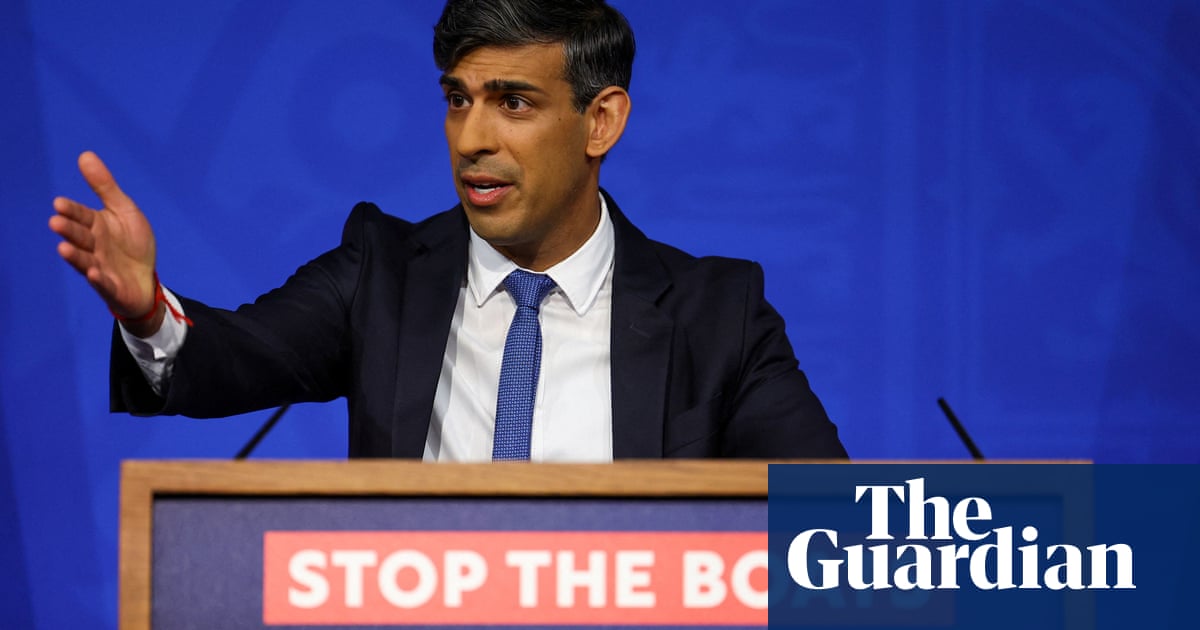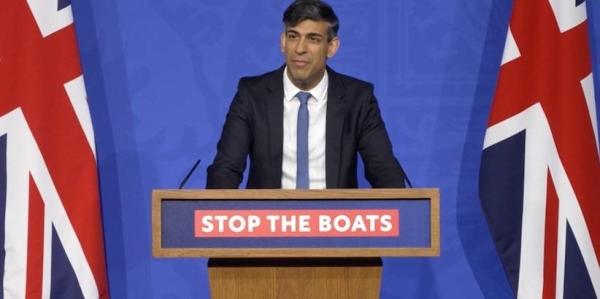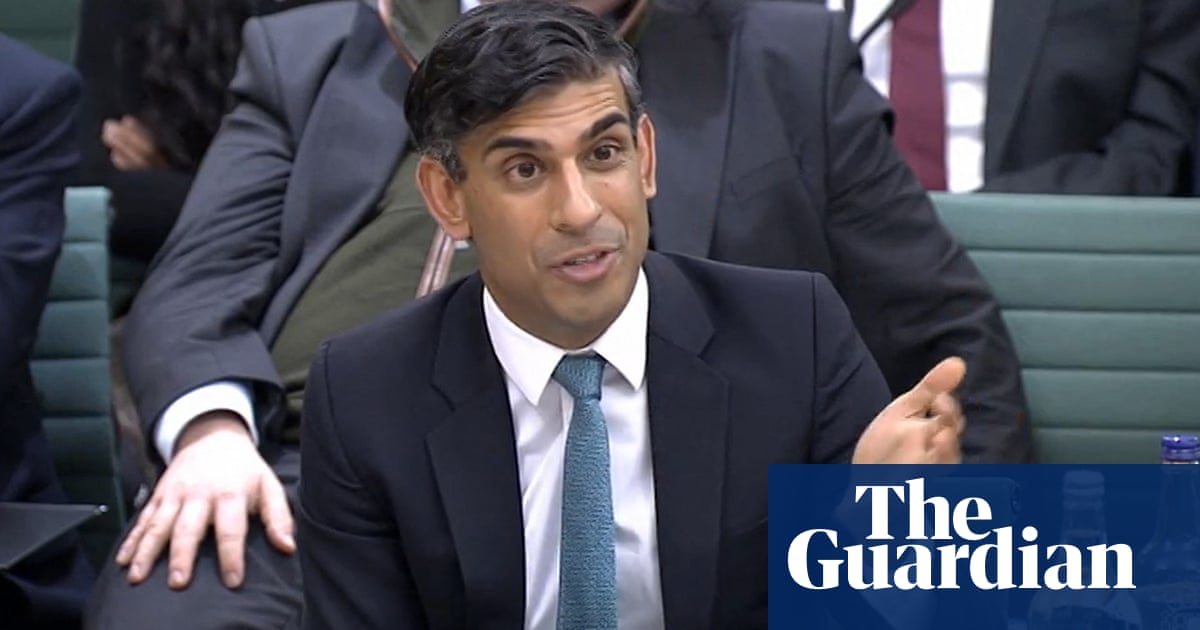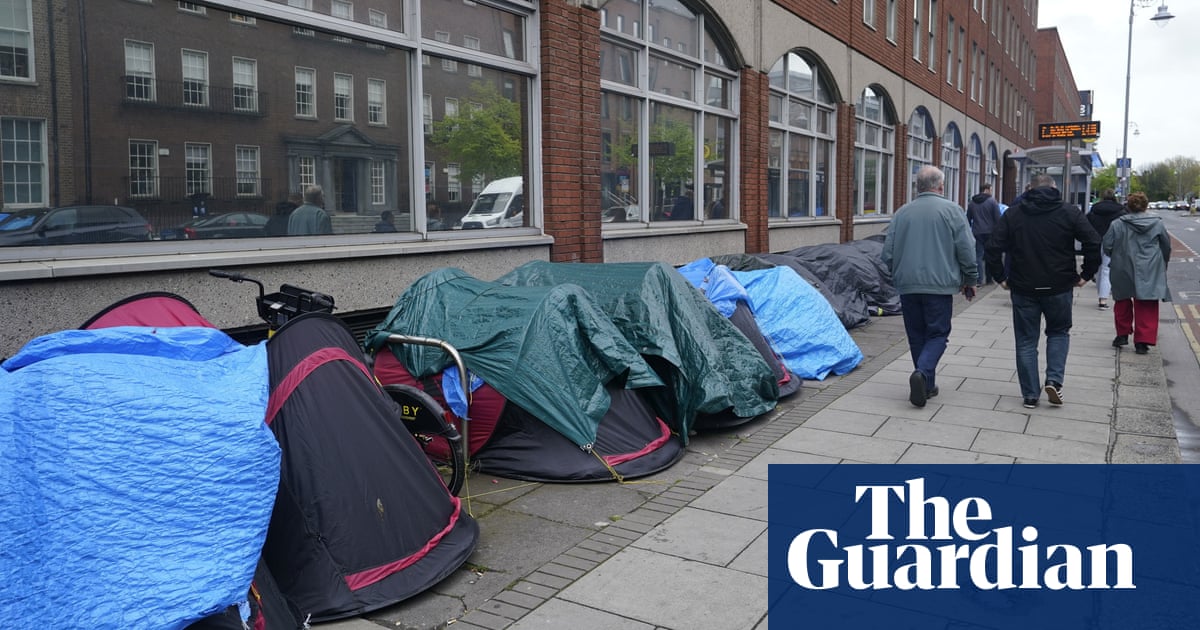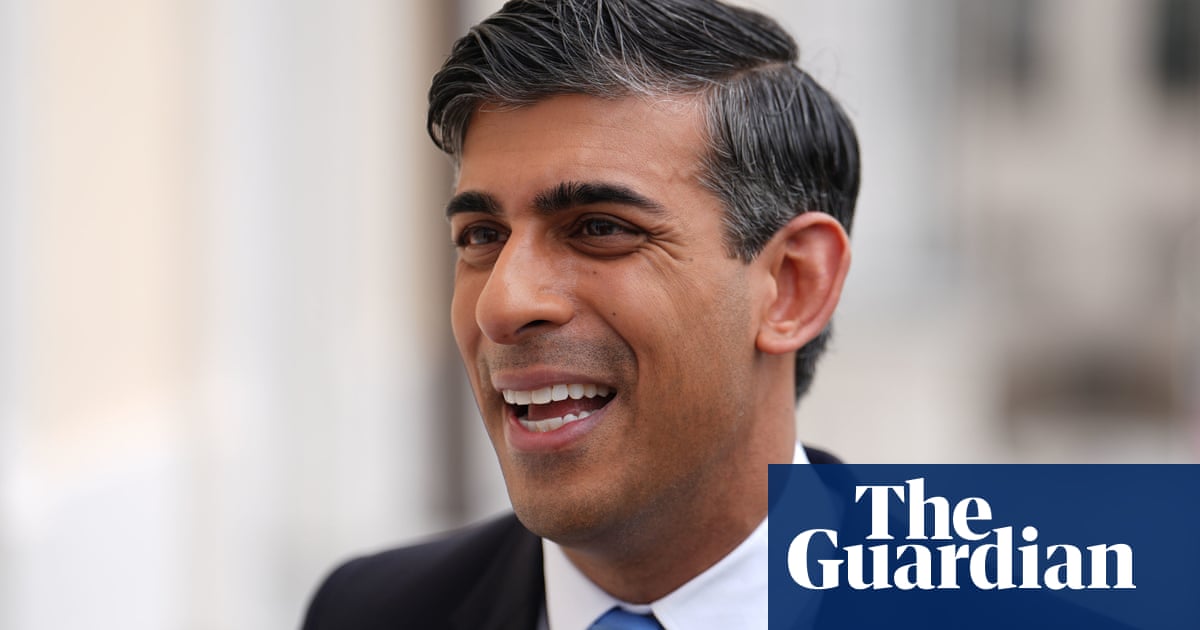
Rishi Sunak has said deportation flights to Rwanda will not leave before the general election, prompting ridicule from Keir Starmer and despair from Tories on the right of the party.
Under the £500m scheme, which is the cornerstone of his government’s promise to “stop the boats”, flights would not start landing in Kigali until “after the election”, the prime minister said.
Sunak made stopping small-boat crossings in the Channel one of his key pledges when he became the Conservative leader. The government had claimed flights would act as a deterrent and would leave from the end of June.
However, a human rights charity and a union have launched fresh legal action against the scheme. Channel crossings are at record highs in the first half of 2024, suggesting there has been no discernible deterrent effect.
Pressed on whether any deportation flights would take off before voters go to the polls on 4 July, Sunak repeatedly said the scheme would get up and running only after the election.
“If I am re-elected as prime minister on 5 July, these flights will go … we will get our Rwanda scheme up and running,” he told the BBC.
Starmer said Sunak had always been aware that the plan, devised two years ago under Boris Johnson, would not work.
“I don’t think he’s ever believed that plan is going to work, and so he has called an election early enough to have it not tested before the election,” the Labour leader said on a visit to Gillingham in Kent.
Tories on the right of the party are frustrated and have said Sunak should have ensured that a plane would land in east Africa before any election date.
One former minister said: “If the PM truly believed in the plan, which ministers have spent so much time getting right, he would have seen it through, whatever it took. Instead, it will be difficult if not impossible to defend because it has not been shown to work.”
Another Conservative said Sunak did not want to take on the European court of human rights, which stopped the last deportation flight to Rwanda in 2022 by issuing a rule 39 injunction.
“The suspicion is that Sunak is worried that Strasbourg would attempt to stop the flights again and is unwilling to ignore their rulings,” they said.
Refugee charities that have been fighting the plan said it was a “dead duck”. Enver Solomon, the chief executive of the Refugee Council, said: “The Rwanda plan will go down in the history of British policymaking as an Alice in Wonderland adventure that was both absurd and inhumane.”
Government lawyers had previously told the high court that the earliest date for flights was the week commencing 24 June.
A government source confirmed that flights would now take off in July, adding that the timetable and process for flights remained unchanged and that the “late June” date had only ever been the earliest possible date.
Labour has said it will not deport migrants to Rwanda if it wins the election, and that it will set up a border force command using £75m from the existing budget for the Rwanda scheme.
Sunak told BBC Breakfast Labour’s plan amounted to an “amnesty” for new migrants who arrived illegally, who now had no routes to apply for asylum.
So far, no one has been deported to Rwanda under the scheme, which the National Audit Office said would cost £1.8m for each of the first 300 people sent there.
Sunak’s comments about his Rwanda scheme came as revised official estimates showed net migration to the UK dipped by 10% last year after rising to a record 764,000 in 2022. It remains three times the 2019 level when the Tories promised to reduce overall figures.
Net migration is expected to be a key issue in the election, particularly in seats where the Tories are facing stiff competition from the Reform party, which is at 11% in the polls.
No 10 said the figures did not take into account the recent tightening of visa rules imposed by the Home Office, which the government hopes will cut arrivals by 300,000 a year, while Labour said they represented “total Tory chaos and failure” on immigration.
A record 68,564 people were granted refugee status or other types of leave to remain in the year to March – the highest level in 40 years. It is the highest number for any 12-month period since records began in 1984, according to Home Office figures.




